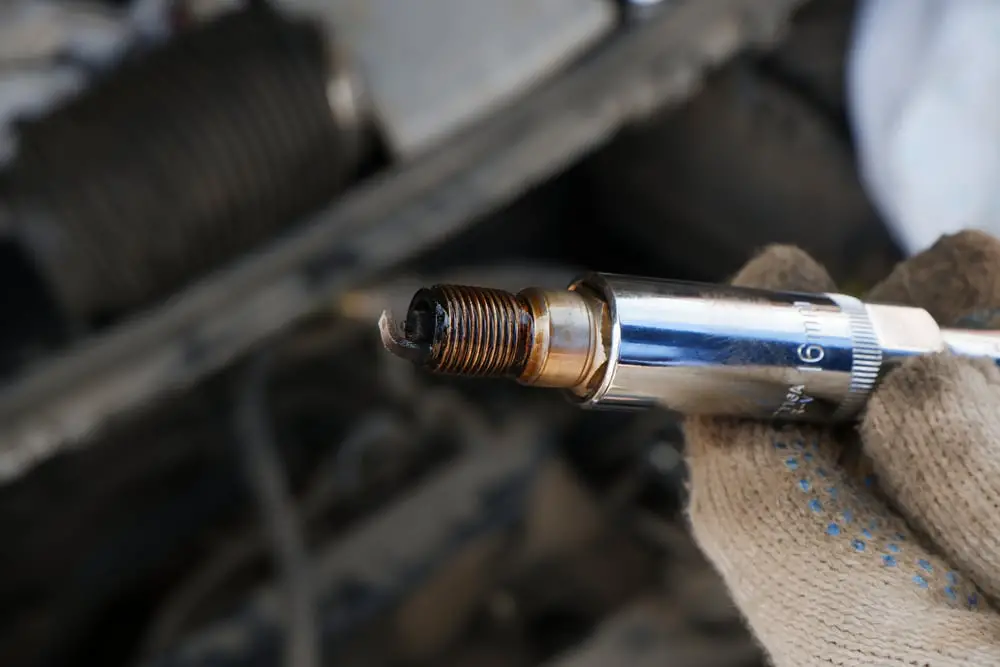Starting your car only to hear it struggle or not start at all can be incredibly frustrating. One potential cause behind this problem is oil on the spark plugs. Understanding how and why oil ends up on spark plugs and how it affects your engine’s performance is crucial for diagnosing and fixing the issue. In this article, we’ll dive deep into the causes, symptoms, and solutions related to oil on spark plugs and its impact on your car’s ability to start.
The Role of Spark Plugs in Your Engine
Spark plugs are essential for igniting the air-fuel mixture within your engine’s cylinders. They create the spark that initiates combustion, enabling the engine to run. For this reason, spark plugs need to be in optimal condition to ensure efficient engine performance.
How Does Oil Gets on Spark Plugs?
There are several ways oil can find its way onto spark plugs, each indicating a different issue within the engine:
Valve Cover Gasket Failure
The valve cover gasket seals the top of the engine, preventing oil from leaking out. When this gasket fails, oil can seep into the spark plug wells, leading to oil-covered spark plugs.
Worn Piston Rings
Piston rings seal the gap between the piston and the cylinder wall, keeping oil out of the combustion chamber. If these rings wear out, oil can leak past them and onto the spark plugs.
Faulty Valve Guides and Seals
Valve guides and seals keep oil from entering the combustion chamber through the valves. When they wear out, oil can leak into the cylinders and coat the spark plugs.
What are the Symptoms of Oil on Spark Plugs?
Recognizing the symptoms of oil on spark plugs can help you address the issue before it leads to more severe engine problems:
Difficulty Starting the Engine
Will oil on spark plugs cause car not to start? Oil on the spark plugs can prevent them from creating a proper spark, making it hard to start the engine. The oil acts as an insulator, disrupting the spark and causing misfires.
Engine Misfires
Misfires occur when the spark plugs fail to ignite the air-fuel mixture properly. This can lead to rough idling, poor acceleration, and an overall decline in engine performance.
Poor Fuel Economy
When spark plugs are contaminated with oil, they can’t perform efficiently. This can result in increased fuel consumption as the engine struggles to maintain proper combustion.
Excessive Exhaust Smoke
Oil burning in the combustion chamber can produce bluish smoke from the exhaust. This is a clear sign that oil is getting into places it shouldn’t be.
Steps to Diagnose Oil on Spark Plugs
Proper diagnosis is crucial for addressing the underlying cause of oil on spark plugs. Here’s how you can go about it:
Visual Inspection
Remove the spark plugs and inspect them for oil deposits. Oil-covered spark plugs will appear wet and blackened. Compare their condition to typical spark plug wear patterns to confirm the presence of oil.
Compression Test
A compression test can help determine if worn piston rings or faulty valve seals are the cause. Low compression readings in one or more cylinders indicate internal engine problems.
Leak-Down Test
A leak-down test measures how well each cylinder holds pressure. Significant pressure loss can point to issues like worn piston rings or valve seals, which can allow oil to reach the spark plugs.
Checking Valve Cover Gasket
Inspect the valve cover gasket for signs of wear or damage. Look for oil leaks around the valve cover and in the spark plug wells. A damaged gasket will need to be replaced to prevent further oil leakage.
What Is the Impact of Oil on Spark Plugs on Engine Starting?
Will oil on spark plugs cause car not to start? Oil on spark plugs can indeed cause a car not to start. The oil interferes with the spark plug’s ability to generate a spark, which is essential for igniting the air-fuel mixture in the engine’s cylinders. Without a proper spark, the engine cannot start, leading to frustrating cranking without ignition.
Addressing the Problem of Oil In Spark Plugs
Once you’ve diagnosed the issue, it’s time to take action. Here’s a step-by-step guide to addressing oil on spark plugs:
Replacing the Valve Cover Gasket
If the valve cover gasket is the culprit, replacing it can stop the oil leak. Clean the valve cover and cylinder head surfaces thoroughly before installing the new gasket to ensure a proper seal.
Fixing Worn Piston Rings
Repairing worn piston rings involves more extensive engine work. In some cases, it might require an engine rebuild or replacement, depending on the extent of the wear and the overall condition of the engine.
Repairing Faulty Valve Guides and Seals
Replacing valve guides and seals requires removing the cylinder head and disassembling the valves. This job is best left to a professional mechanic, as it involves precision work and specialized tools.
Preventive Measures to Take
To prevent oil from contaminating your spark plugs in the future, consider the following preventive measures:
Regular Maintenance
Regular maintenance can help catch potential issues early. Follow your vehicle’s maintenance schedule for oil changes, inspections, and tune-ups to keep your engine in good shape.
Use High-Quality Gaskets and Seals
When replacing gaskets and seals, use high-quality parts that meet or exceed OEM specifications. Quality parts provide a better seal and last longer, reducing the risk of future leaks.
Monitor Engine Performance
Keep an eye on your engine’s performance and address any unusual symptoms promptly. Early intervention can prevent minor issues from becoming major problems.
Proper Oil Levels
Maintaining proper oil levels is crucial for preventing leaks and ensuring optimal engine performance. Overfilling the oil can increase pressure and cause leaks, so always use the correct amount specified in your owner’s manual.
When to Seek Professional Help?
While some issues can be addressed with DIY repairs, others require professional expertise. Here’s when you should consider seeking professional help:
Persistent Oil Leaks
If you’ve replaced the valve cover gasket and still notice oil leaks, there might be a more serious underlying issue. A professional mechanic can perform a thorough diagnosis and recommend appropriate repairs.
Engine Performance Issues
Persistent misfires, rough idling, or poor acceleration despite replacing spark plugs and addressing visible leaks may indicate deeper engine problems. Professional diagnostics can pinpoint the cause and ensure proper repairs.
Internal Engine Repairs
Jobs like replacing piston rings or valve guides involve significant engine disassembly and precision work. Professional mechanics have the tools and experience needed to perform these repairs correctly.
What are the Cost of Repairs?
The cost of addressing oil on spark plugs can vary depending on the underlying cause and the extent of the repairs needed. Here’s a general idea of potential costs:
Valve Cover Gasket Replacement
Replacing a valve cover gasket is one of the more affordable repairs, typically costing between $100 and $300, including parts and labor.
Piston Ring Replacement
Repairing worn piston rings is a more extensive and expensive job. Costs can range from $1,500 to $4,000 or more, depending on the make and model of your vehicle and the extent of the damage.
Valve Guide and Seal Replacement
Replacing valve guides and seals also involves significant labor. Expect to pay between $500 and $2,000 for this type of repair, depending on your vehicle and the specific work required.
DIY vs. Professional Repairs
Deciding whether to tackle repairs yourself or seek professional help depends on your skill level, the complexity of the repair, and your comfort with working on your vehicle. Here’s a breakdown of DIY vs. professional repairs:
DIY Repairs
Simple repairs like replacing the valve cover gasket can be done by many car owners with basic mechanical skills and tools. DIY repairs can save money, but it’s important to follow instructions carefully and ensure a proper seal.
Professional Repairs
Complex repairs, such as piston ring replacement or valve guide and seal replacement, should be handled by a professional mechanic. These jobs require specialized tools, precision work, and expertise to ensure proper installation and avoid further damage.
The Importance of Timely Repairs
Addressing oil on spark plugs promptly is crucial for maintaining your vehicle’s performance and preventing more severe engine damage. Ignoring the problem can lead to increased oil consumption, decreased fuel economy, and even catastrophic engine failure.
Conclusion
Will oil on spark plugs cause car not to start? Oil on spark plugs can indeed prevent your car from starting, among other performance issues. By understanding the causes, symptoms, and solutions related to this problem, you can take appropriate action to address it. Whether it’s replacing a valve cover gasket, fixing worn piston rings, or repairing faulty valve guides and seals, timely intervention is key to keeping your engine running smoothly. Regular maintenance, quality parts, and monitoring your engine’s performance are essential for preventing future issues and ensuring a reliable and efficient vehicle. Stay proactive, address issues promptly, and your car will thank you with a smooth and reliable performance.

